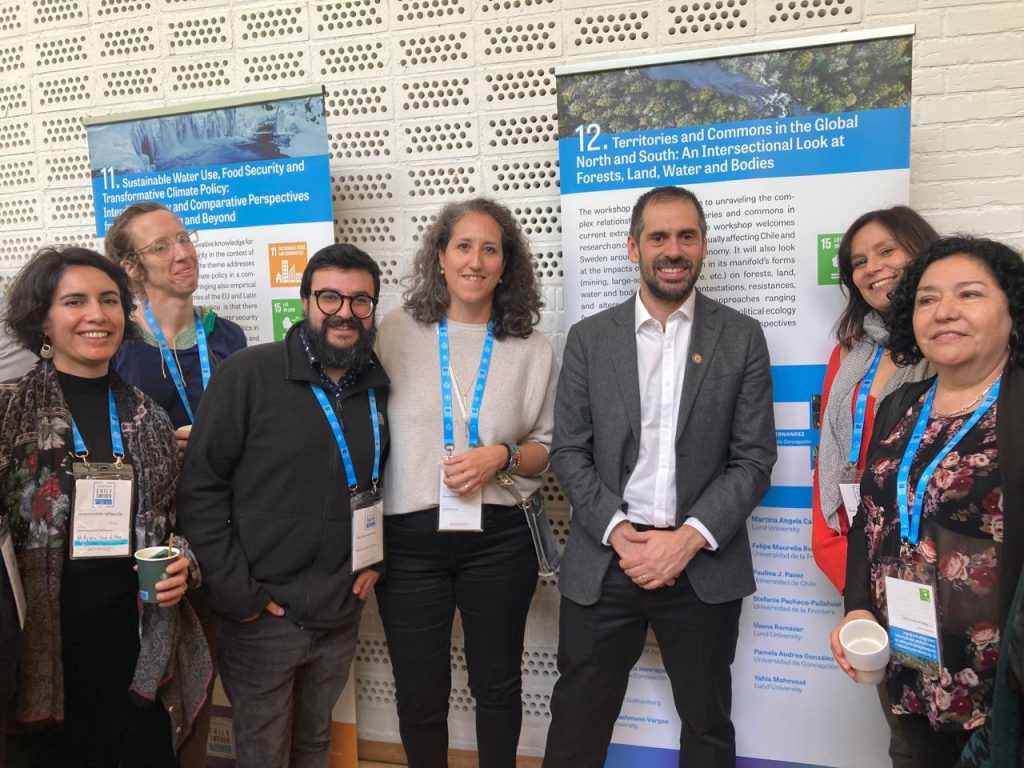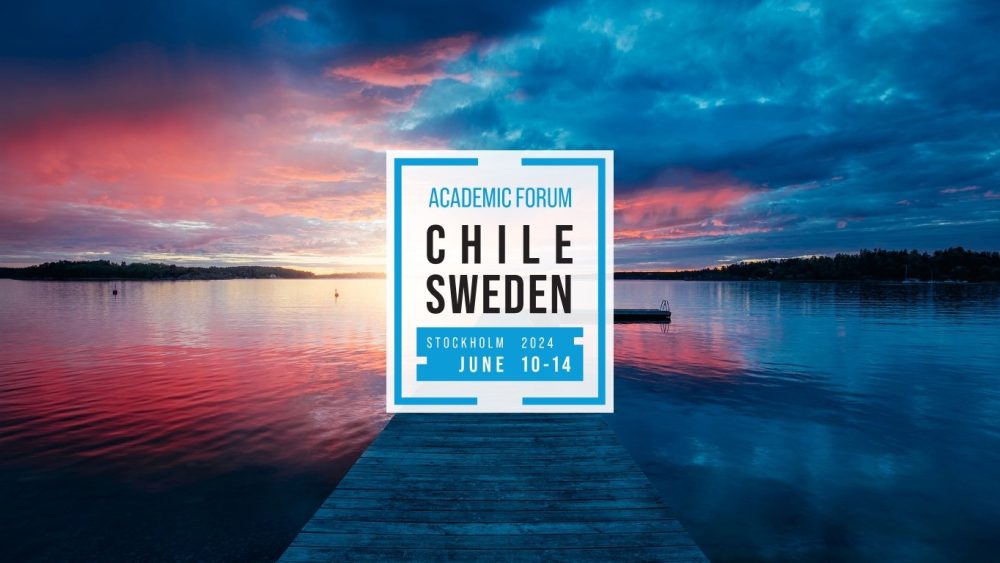Theme 12: Territories and Commons in the Global North and South: An Intersectional Look at Forests, Land, Water and Bodies
Maria Andrea Nardi – Sandra Fernández – Felipe Maurelia Burgos – Hanna Ekström – Jacquline Boldt Corvalán – Katia Valenzuela-Fuentes – Marien González-Hidalgo – Marcelo José Becerra Parra – Noelia Carrasco Henríquez – Pamela Andrea González Fuentes – Pamela Bachman-Vargas – Paulina J. Pavez – Stefanie Pacheco-Pailahual – Yahia Mahmoud
Introduction
The Research Theme aims to contribute to unraveling the complex relationships between territories and commons in current extractivism frontiers. We welcome research on contemporary issues equally affecting Chile and Sweden around the extractive economy. We invite researchers interested in the current expansion of the extractive production model in South America and the Artics from a critical environmental approach.
We are interested in looking at the impacts of the extractivism in its manifold’s forms (mining, large-scale monoculture, etc.) on forests, land, water and bodies but also the contestations, resistances, and alternatives against it, from approaches ranging from critical theories on development and political ecology to those that draw on decolonial and feminist perspectives on post-development.
Expectations
Privileging an intersectionality as a research analysis tool this Research Theme called for researchers interested in discussing on some of the following questions:
● The relationship between the extractivist model and socio-biodiversity degradation and violence. Plantations of exotic species and agroindustry are presented as the triggers of the loss of biodiversity, long periods of drought, contamination of soil and water, as well as the weakening of farmers, peasants, and indigenous economies. Mining, mineral and gas exploration disrupt herding, local cultures, and their relations with their natural environment. What is the relation between the extractive economy, socio-biodiversity degradation, and (slow) violence?
● Global production chains motorising extractivism emerge in particular geographies of the Global North and South (e.g., urban areas) reshaping territories and commons in ‘marginal’ spaces (e.g., indigenous lands, urban peripheries). How can a decolonial approach assist us to better understand new colonial relations (global, internal, economic, political, ecological) in the world economy and its materialisations in territories and bodies?
● Large-scale forestry and agricultural monoculture or metal and fossil fuel exploitation represent a plundering of natural common goods (such as soil, water, or minerals) and deepens the sexual and spatial division of labour. Women see their subsistence threatened since they have a central role in the management of natural resources and ecosystem services. In some spaces, they are forced to enter precarious salaried work which violates their own bodies-territory. Despite this, women manage to develop different ways of relating to nature through innovative agricultural, agroecological, governance practices of water, forests and soils. How can these practices allow us scholars to envision the potential of building decolonizing paradigms of development through the collective work of rural women (and men) (and together with them) in the identification of other ways of living on Earth and valuing nature and socio-cultural relations?
Our common ground
This synthesis is the result of three days discussions between scholars from diverse disciplines, coming from diverse territories both in Sweden and Chile, with very rich research and teaching experiences.
These discussions were facilitated by a variety of alternative and engaging methods. Such methods permitted an intellectual and embodied praxis that we share here with you.
While we acknowledge that common goods and spaces play a central role in the wellbeing of human and more-than-humans (“nature”), we observe that current capitalist development model radically transforms landscapes, territories, and bodies of those who inhabits ‘sacrifice zones’, in particular.
Not all of us who inhabit planet earth experience and suffer transformations equally. However, we observe that extractives economies exist both in Chile and Sweden, for example in territories of Sami or Mapuche peoples, in urban residential areas, in forests and waterscapes and beyond.
There is widely documented evidence that extractivism radically undermines balanced socio-ecological relations. We can see this in current climate change and biodiversity loss among other crises.
Nevertheless, such transformations do not go uncontested. From a diversity of territories peoples are resisting, organising alternatives to development, mobilising more pluricentric (and less anthropocentric) economies of production and reproduction.
We see therefore a need to rethink development models and those scientific knowledge systems that legitimise extractivism even when it is in the name of ‘sustainable development’
Science is not impartial, it is not neutral, it is not apolitical. What science do we need so that we can protect, defend, and restore our common goods and spaces?
How should we generate knowledge in a way that would allow us to challenge both development and science as we know it?
We call for an embodied and situated knowledge production that challenges the ‘scientific method’, this means to decolonise our epistemological and methodological ways of doing science.
We need more ethical, dialogical, horizontal and participatory knowledge production beyond academia.
ACCESS Forum has been for us an opportunity to create scientific community that thinks, feels, and produces otherwise.
One of the highlights of the Forum was the visit of Gabriel Boric – president of Chile – with his delegation. Ministry of Economy – Nicolas Grau – talked to us about forest in the country and we had the chance to discuss about the importance of considering environmental consequences of large-scale forestry in addition to working conditions in the sector.

Participants in Theme 12
Maria Andrea Nardi – Lund University, Sweden
Sandra Fernández – University of Concepción, Chile
Felipe Maurelia Burgos – Universidad de La Frontera, Chile
Hanna Ekström – Lund University, Sweden
Jacquline Boldt Corvalán – University of Concepción, Chile
Katia Valenzuela-Fuentes – University of Concepción, Chile
Marien González-Hidalgo – Swedish University of Agricultural Sciences, Sweden
Marcelo José Becerra Parra – University of Concepción, Chile
Noelia Carrasco Henríquez – University of Concepción, Chile
Pamela Andrea González Fuentes – University of Concepción, Chile
Pamela Bachman-Vargas – Umeå University, Sweden
Paulina J. Pavez – Universidad de Chile, Chile
Stefanie Pacheco-Pailahual – Universidad de La Frontera, Chile
Yahia Mahmoud – Lund University, Sweden
More information about ACCESS Forum 2024 in Stockholm here.

